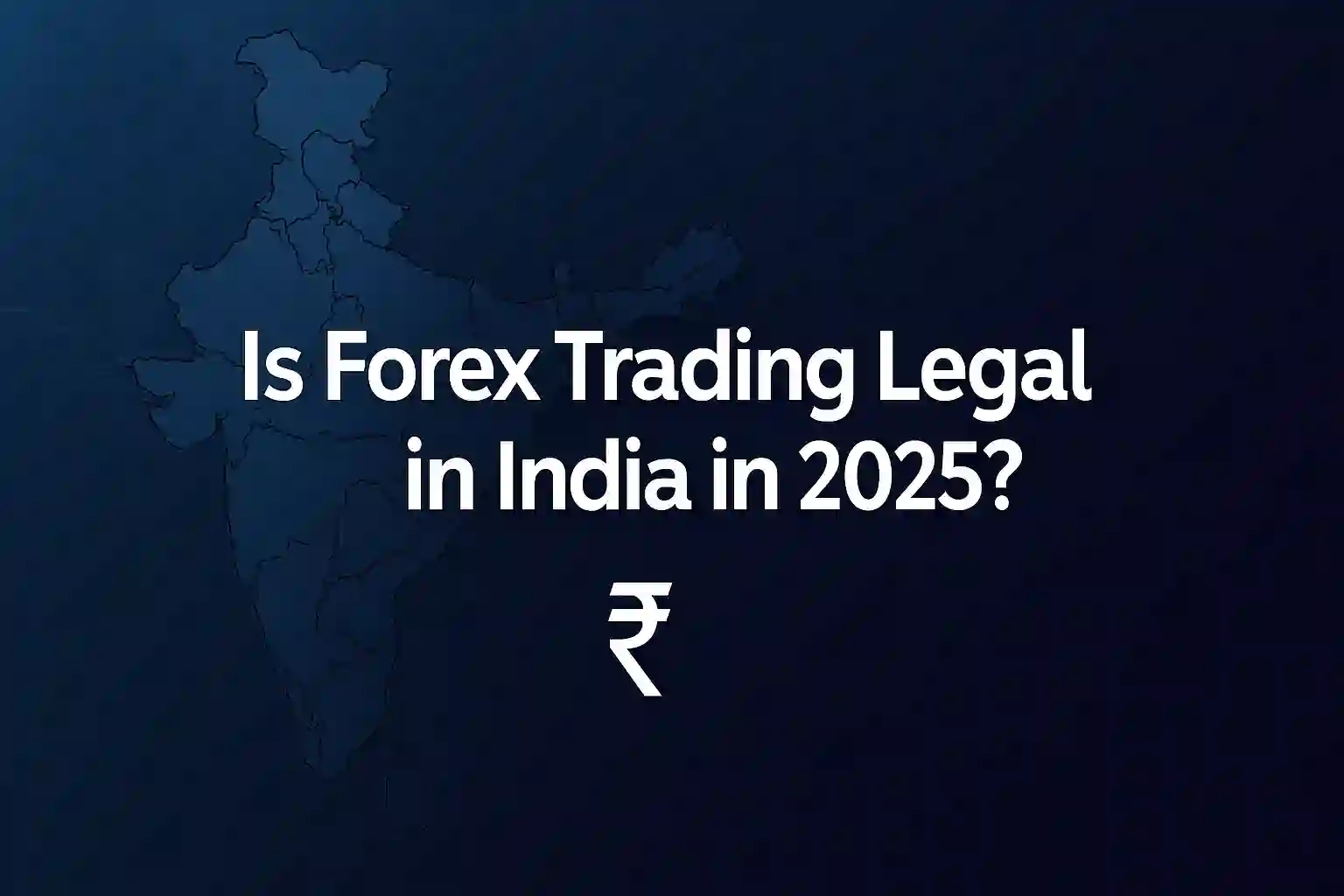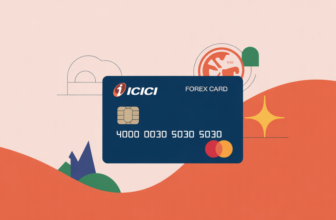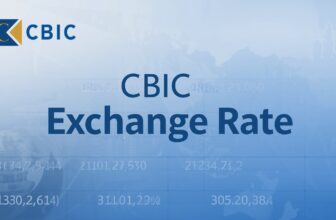
The question of whether forex trading is legal in India has lingered for years—like a fog that never quite clears. In 2025, this uncertainty still prompts debates among traders, economists, and regulators alike. But the answer is not a simple yes or no. It depends, as most legal matters do, on the nature of the transaction, the platform used, and the currencies involved.
Let’s unpack this layered reality and navigate through the regulatory maze that defines the forex trading landscape in India today.
Forex Trading Legality in India (2025)
Navigating the regulatory landscape
Legal Trading
- INR-based currency pairs (USD/INR, EUR/INR)
- SEBI/RBI regulated platforms
- Exchange-traded derivatives on NSE or BSE
- Apps approved by Indian regulators
Illegal Trading
- Cross-currency pairs without IFSC approval
- Offshore brokers not registered in India
- Binary options, high-leverage spot forex
- MetaTrader with unlicensed foreign brokers
Key Insight: Forex trading is not entirely illegal in India. The legality depends on the currency pairs traded, the platform used, and compliance with RBI and SEBI regulations.
Understanding the Legal Boundaries
To begin with, forex trading is not entirely illegal in India. That misconception stems from a half-truth often echoed in online forums. As of 2025, the Reserve Bank of India (RBI) and the Securities and Exchange Board of India (SEBI) allow forex trading under certain conditions—specifically, when done through registered platforms and involving currency pairs benchmarked against the Indian Rupee (INR).
This means trading in pairs like USD/INR, EUR/INR, GBP/INR, and JPY/INR is permitted on platforms regulated by SEBI or the RBI.
“We have always encouraged regulated participation in foreign exchange markets. What we discourage is offshore, unregulated trading that exposes Indian investors to unnecessary risks,” said a senior SEBI official during a compliance roundtable earlier this year.
So, the problem isn’t forex trading itself—it’s how and where it’s done.
Legal vs Illegal: Drawing the Line
To clarify the confusion, here’s a quick table highlighting what constitutes legal and illegal forex trading in India as of 2025:
| Aspect | Legal | Illegal |
|---|---|---|
| Currency Pairs | INR-based (e.g., USD/INR, EUR/INR) | Cross-currency (e.g., EUR/USD, GBP/JPY) unless via IFSC brokers |
| Platforms | SEBI/RBI regulated platforms (e.g., Zerodha, HDFC Securities) | Offshore brokers not registered with Indian authorities |
| Apps/Platforms | Legal forex apps in India like Dhan, Angel One, and Kotak Securities | MetaTrader accounts tied to unlicensed foreign brokers |
| Authorization | Platforms approved by SEBI or RBI | Brokers operating without Indian oversight |
| Trading Method | Exchange-traded derivatives on NSE or BSE | Binary options, high-leverage spot forex outside Indian exchange |
This framework answers a recurring query: Is forex trading illegal in India? Not if done by the book.
Which Forex Trading Apps Are Legal in India?
In 2025, the market has seen a shift toward more transparent and regulated forex apps. Indian brokers are gradually integrating forex offerings into their platforms while staying compliant with SEBI norms.
SEBI-Regulated Apps Offering Legal Forex Trading:
| Legal Forex Trading App | Regulated by | Supports INR Pairs | Cross-Currency Support |
|---|---|---|---|
| Zerodha Kite | SEBI | Yes | No |
| Dhan | SEBI | Yes | Limited via IFSC |
| Angel One | SEBI | Yes | No |
| Kotak Securities | SEBI/RBI | Yes | No |
| Groww | SEBI | Yes | No |
Any app or broker promising access to exotic currency pairs or offering high leverage should be treated with caution—especially if they operate without an Indian license.
The IFSC Loophole: Is It Really Legal?
Here’s where things get murky. The International Financial Services Centres Authority (IFSCA), operating out of GIFT City in Gujarat, has allowed Indian traders to access cross-currency forex pairs via regulated brokers like Stockal or HDFC IFSC.
But this route isn’t widely accessible. It requires a specific type of account and typically serves High Net Worth Individuals (HNIs) or institutional traders. So while forex currency trading is legal in India through this channel, it's not broadly viable for everyday retail traders.
That said, many experts expect the regulatory gate to widen gradually.
"The IFSC framework could be India’s bridge to global forex markets, provided proper investor safeguards are in place," remarked Professor Meera Desai of the Indian Institute of Finance.
Why Was Forex Trading Once Considered Illegal in India?
Historically, capital flight and currency volatility were major concerns for Indian regulators. Allowing unrestricted forex trading meant exposing the Indian Rupee to speculative pressure—something the RBI wanted to avoid.
Additionally, unregulated platforms—some of them outright scams—were luring Indian traders with promises of high returns. This led to thousands of retail investors burning their fingers in offshore schemes, pushing the RBI to crack down hard.
So, when someone asks why forex trading is illegal in India, the answer lies in the context of risk, not intent.
How to Do Forex Trading Legally in India (2025 Edition)
If the goal is to engage in forex trading within the limits of Indian law, here’s a quick roadmap:
- Choose a SEBI-regulated broker: Ensure the platform is licensed and listed on SEBI’s official site.
- Stick to INR pairs: Trade only in currency pairs where INR is the base or quote currency.
- Avoid offshore platforms: Even if they look attractive or offer better leverage, they are not worth the legal and financial risks.
- Explore IFSC brokers: If eligible, consider trading through brokers authorized by IFSCA.
- Use approved trading apps: Apps like Kite (Zerodha) and Angel One comply with SEBI standards and support legal forex derivatives.
Final Thoughts: The Road Ahead
The regulatory stance on forex trading in India in 2025 reflects a fine balance—opening doors cautiously while protecting retail investors. Personally, I think the evolution toward greater inclusion of cross-currency pairs, possibly under IFSC's guidance, is inevitable. India’s increasing integration with global markets makes that a necessity, not just a possibility.
Still, until broader reforms materialize, the safest bet for Indian traders is to trade within the legal frameworks, no matter how tempting the offshore promises may appear.
And if there’s one thing history teaches us—it’s that in the world of finance, compliance is not just a requirement, it is a strategy.
FAQs
1. Is forex trading legal in India in 2025?
Yes, but only if done via SEBI or RBI regulated platforms and in INR-based currency pairs.
2. Which forex trading apps are legal in India?
Zerodha Kite, Angel One, Dhan, Groww, and Kotak Securities are some SEBI-compliant apps.
3. Can Indians trade in EUR/USD or GBP/JPY?
Only through IFSC-authorized brokers, and subject to eligibility and compliance norms.
4. Why was forex trading once considered illegal in India?
Due to fears of capital flight, exchange rate instability, and scams from unregulated offshore brokers.
5. Is it safe to use MetaTrader in India?
Only if linked to a SEBI-regulated broker. Using MetaTrader with offshore accounts is not legally permissible.

















